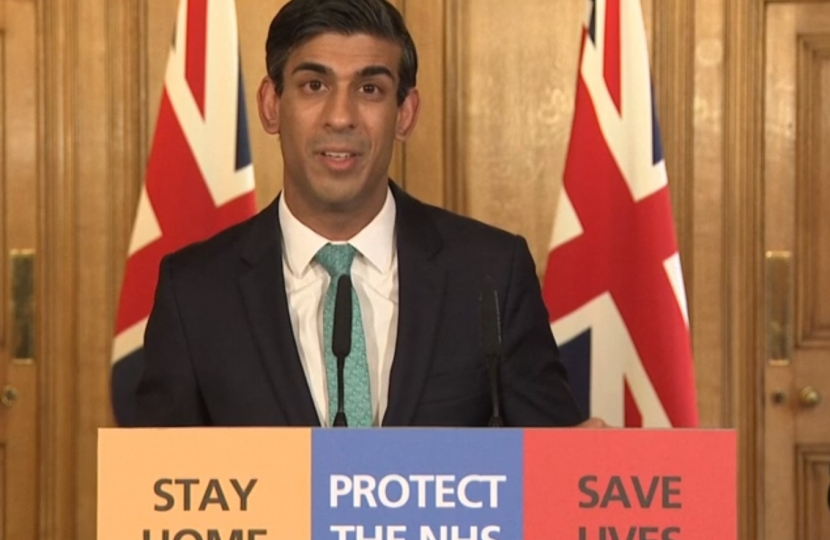
This evening, The Chancellor announced a massive package of support for the self-employed. The Government has been working around the clock to devise a scheme that would support the 10% of the population that are self-employed.
The Government's Self-Employed Income Support Scheme:
- Pays 80% of average profits over the past three years.
- Up to £2,500 per month.
- For those with average profits of £50,000 or less, who take the majority of their income from self-employment.
- For self-employed people who are struggling now, the Government has also made sure that most will be able to access business interruption loans.
- Self-employed people who are eligible can apply directly to HMRC for the grant, using a simple online form; HMRC will then pay the grant directly to your bank account.
- Self-employed people can also now access the Universal Credit system in full.
For example, a self-employed person with a non-working partner and two children, living in the social rented sector, can receive welfare support of around £1,800 per month.
This is in addition to the measures already announced by the Government:
- The Government is deferring income tax self-assessment payments due in July 2020 to January 2021. This is an automatic offer with no applications required.
- Those on contributory ESA will be able to claim from day 1, instead of day 8. The Chancellor is also relaxing the requirement for anyone to physically attend a jobcentre – everything can be done by phone or online.
- The Government is increasing the Universal Credit standard allowance, for the next 12 months, by £1,000 a year. We will also increase Working Tax Credit by the same amount for a year.
- Self-employed people can now access, in full, Universal Credit at a rate that is equivalent to Statutory Sick Pay for employees.
- The Government is introducing a three month mortgage holiday for those in difficulty due to coronavirus so people will not have to pay a penny towards their mortgage while they get back on their feet.
- Self-employed people may be eligible to receive support with their tax affairs through HMRC’s Time to Pay service. Arrangements are agreed on a case-by-case basis.
- The Coronavirus Business Interruption Loan Scheme is available to self-employed individuals with an eligible business entity. By providing an 80 per cent government guarantee on finance facilities up to £5 million, this scheme will help more businesses access the finance they need.
- The Government have delayed changes to IR35. The Chancellor has delayed bringing in changes to IR35 from April 2020 until April 2021, giving self-employed people more time to prepare for the reforms.
- Introducing emergency legislation to protect renters, so that no one gets evicted if they cannot pay their rent. Emergency legislation will be taken forward as an urgent priority so that landlords will not be able to start proceedings to evict tenants for at least a three-month period. As a result of these measures, no renters in private or social accommodation needs to be concerned about the threat of eviction.
- Introducing new emergency measures with the energy industry to keep gas and electricity flowing. New emergency measures with the energy industry will protect those most in need. Customers with pre-payment meters who may not be able to add credit can speak to their supplier about options to keep them supplied, benefitting over 4 million customers. More broadly, any household in financial distress will be supported by their supplier, which could include debt repayments and bill payments being reassessed, reduced or paused.

